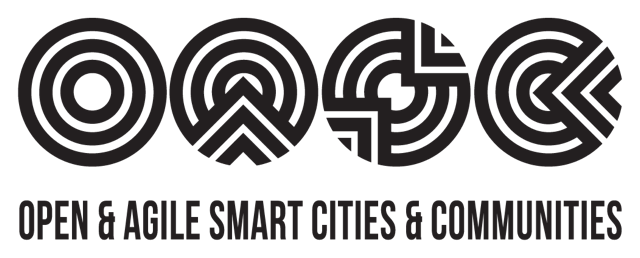Brussels, 17 July 2024 – The Open and Agile Smart Cities and Communities (OASC) is pleased to announce that the United Nations’ International Telecommunication Union (ITU) Study Group 20 (SG20) has formally adopted by consent the “Y.MIM” global standard for minimal interoperability. This significant milestone represents a major step forward in enabling cities and communities worldwide to reach their goals for an inclusive, sustainable and prosperous future using digital technologies.
The “Y.MIM” standard, developed by OASC’s dedicated community, in collaboration with the ITU membership, provides a robust framework for achieving interoperability between diverse smart technologies, including sensors, data platforms, artificial intelligence (AI), digital twins and metaverse. By adhering to this standard in their procurement and development, cities and communities can enhance their ability to deliver effective services, and create more resilient environments for human settlements of all shapes and sizes.
Martin Brynskov, OASC Founding Director and Standardisation Lead, expressed his enthusiasm: “The approval of the ‘Y.MIM’ standard by ITU SG20 underscores the importance of collaboration and open standards in better connecting communities. We believe this standard will empower cities and communities to unlock the full potential of their digital infrastructure.”
Michael Mulquin, OASC MIMs Ambassador, added: “The ‘Y.MIM’ standard represents a significant achievement for OASC and the global smart cities community. It sets the stage for increased innovation, efficiency, and sustainability.”
The “Y.MIM” standard was collaboratively developed by OASC, the European Union, Denmark, and Spain. These key stakeholders worked together with partners, including Japanese and Korean, to ensure that the standard addresses the unique needs and challenges faced by cities and communities worldwide.
Looking ahead, OASC is excited to announce several work items proposed for the next study period (2025-2028). These items will be discussed at the World Telecommunication Standardization Assembly (WTSA) in New Delhi, India, scheduled for November.
-
- MIM-based architectural framework: both to inform the ongoing development of the MIMs, and to support cities and communities as well as their suppliers in developing an holistic approach to implementing minimal but sufficient interoperability.
- Integrated interoperability framework for data processing and management: providing a framework and requirements for interoperability that sets technical interoperability alongside, for instance, semantic and operational interoperability.
- Implications of Generative Artificial Intelligence on Semantic Interoperability: exploring how smart cities and communities can benefit from GenAI to help with semantic interoperability.
We are also working up proposals related to Minimal interoperability for Local Digital Twins, Positive Energy Districts, and a Framework to support AI-powered public digital services by cities and communities.
In addition, we will help collect a comprehensive list of existing standardisation work related to Local Digital Twins for use in developing a roadmap for standards development.
OASC invites all stakeholders, including cities, national governments, industry partners, and researchers, to actively participate in shaping the future of smart cities and communities through these exciting initiatives.
For further information, please contact Martin Brynskov (martin.brynskov(at)oascities.org) or Michael Mulquin (michael(at)oascities.org).

